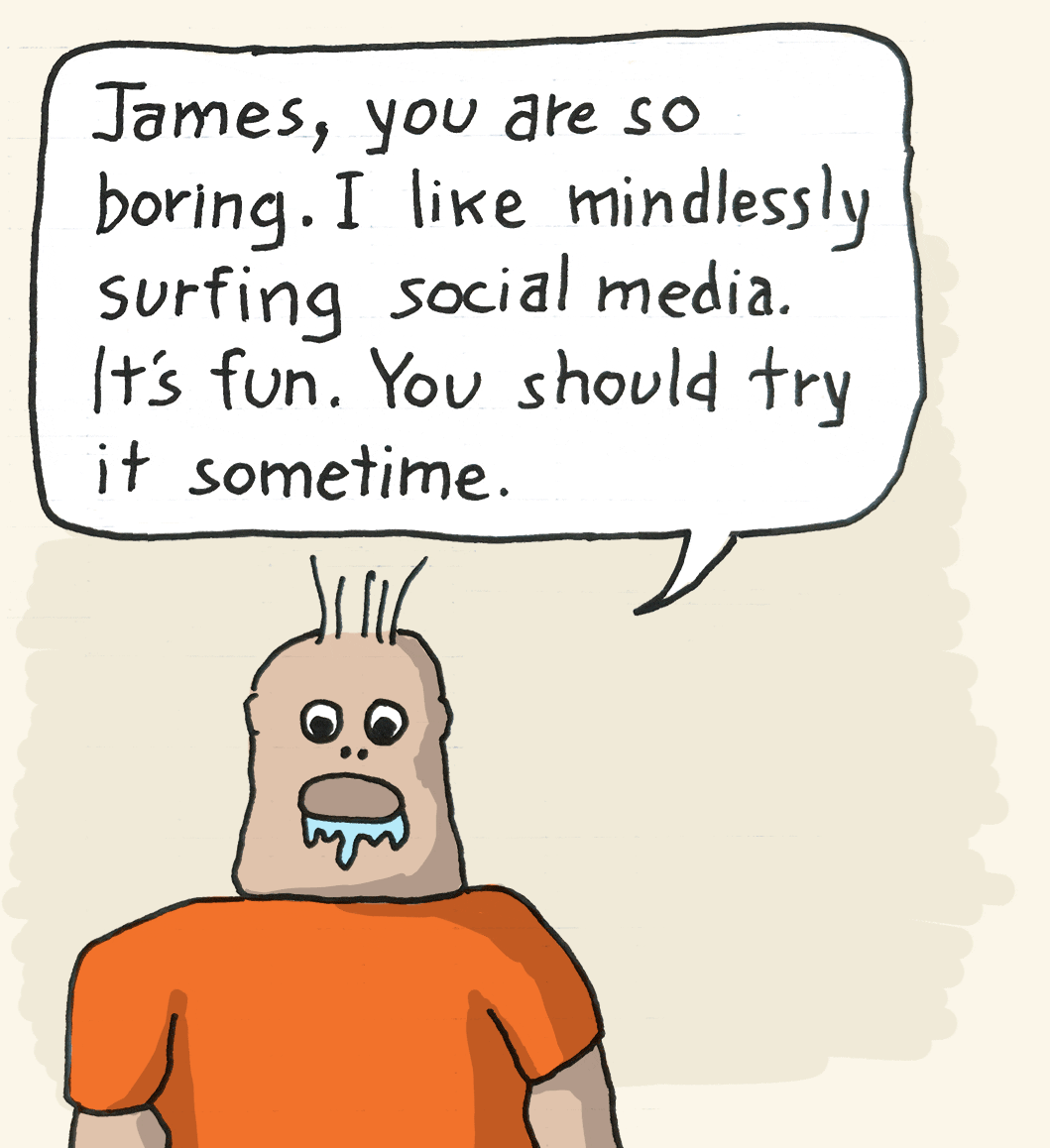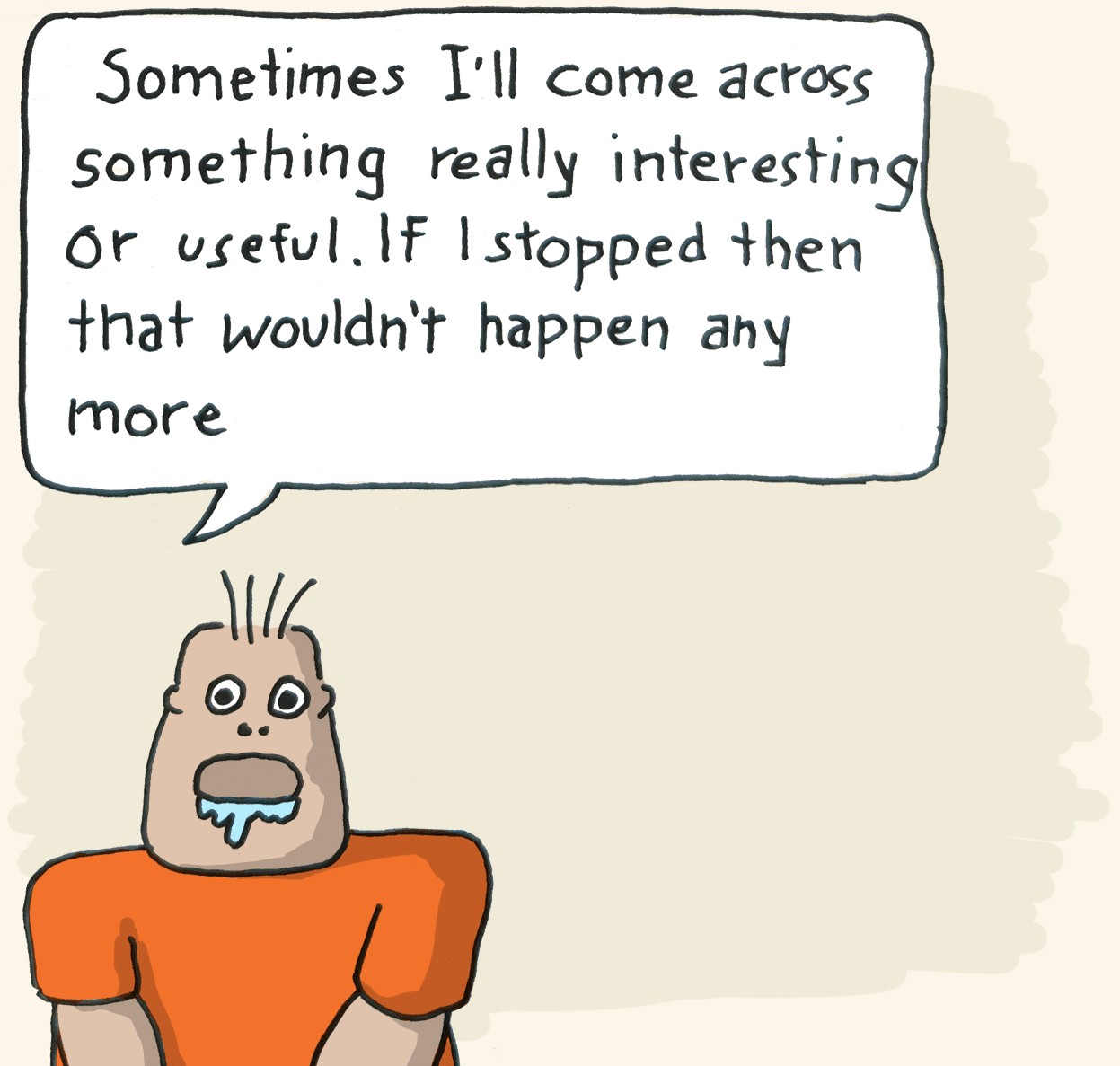We need to talk about your information diet
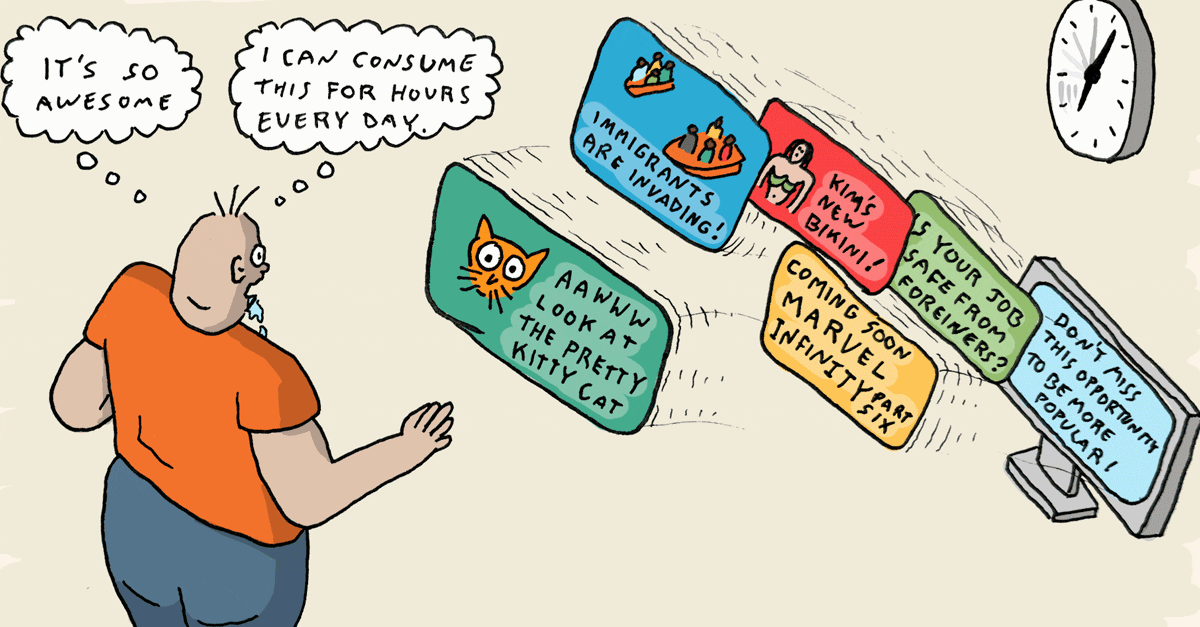
1 Tinbergen won the 1973 Nobel Prize in Physiology or Medicine with Karl von Frisch and Konrad Lorenz for their discoveries about animal behavior.
Nikolaas Tinbergen studied animal behavior1. In one famous experiment, he watched a herring gull chick peck at a red spot on its parents beak, causing the parent to regurgitate a fish for it to eat. Then he held a stick with a bigger red spot on it, and the chick pecked the bigger spot in preference to the spot on the parents beak. Of course this didn’t result in a vomited fish, but as far as the chick was concerned, red spots are great and so bigger red spots are even better. It doesn’t matter if the spot is attached to a parent bird or not. Tinbergen called this type of “bigger is better” response supernormal stimulus.
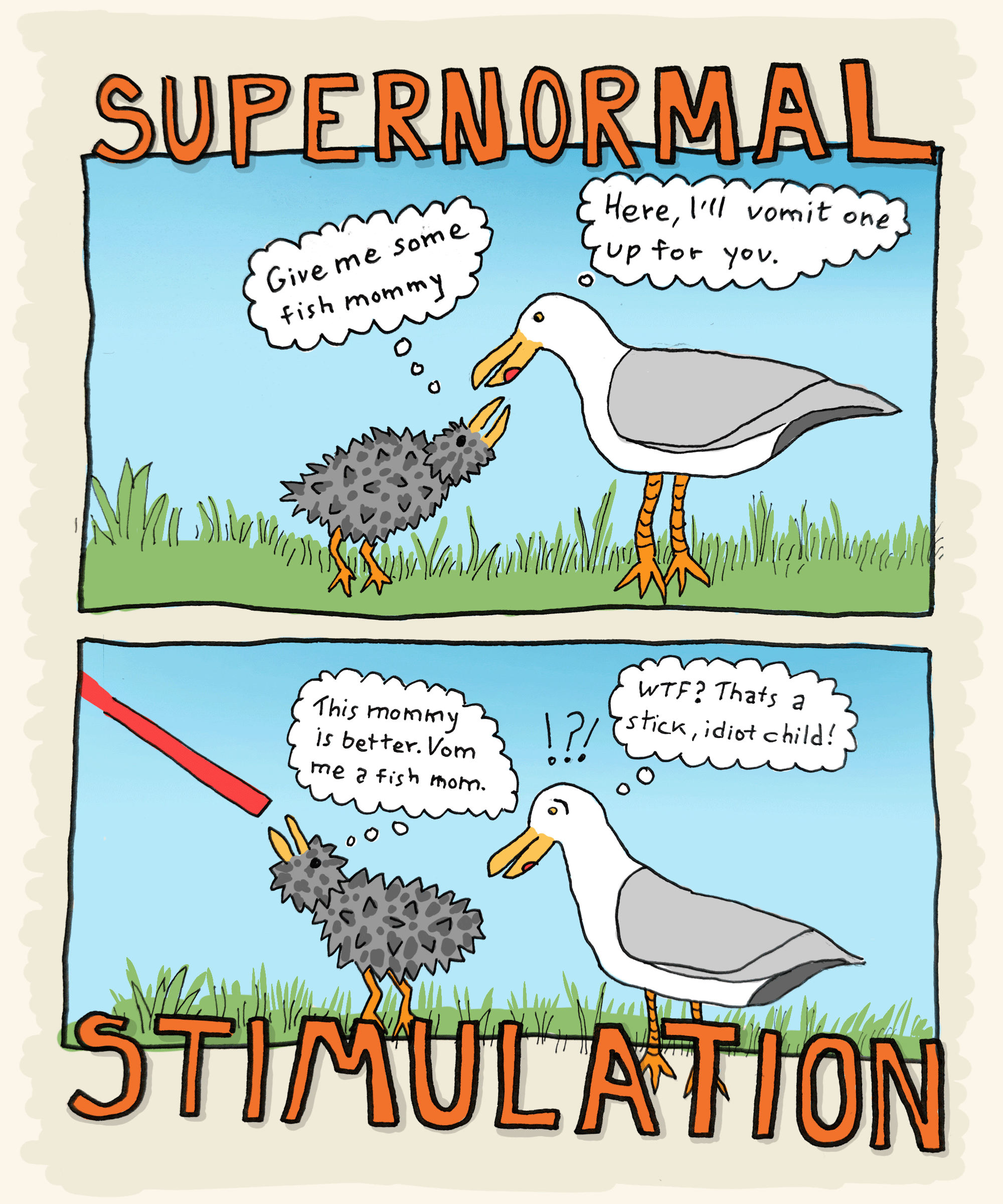
Now you might think — stupid creature, aren’t animals dumb? But the chick was just responding as it has been programmed to do by evolution. The chicks which learned to peck at the red spot survived more often than those that didn’t. So pecking at the red spot became essential to a chick’s survival. Chicks developed a strong urge to peck at the red spot. And so a bigger red spot meant the chick had a stronger desire to peck.
Here’s the bad news. We are animals too, and we have the same kind of dumb responses to supernormal stimuli. Bigger, louder, faster, stronger - the more it is, the more we respond to it.
Fighting evolution is hard
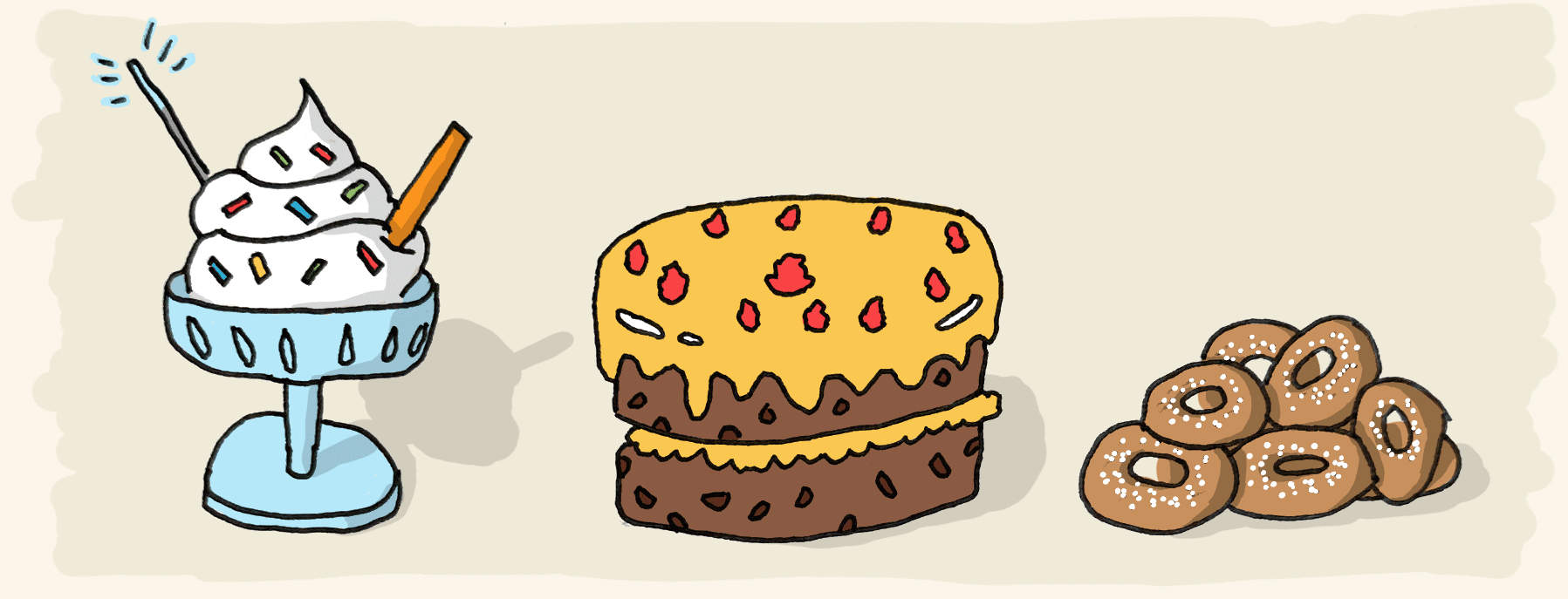
That’s why dieting is difficult. When we lived in the savanna or jungle, things containing sugars and fats were hard to come by. Sugars and fats are full of energy, and were rare and highly valuable resources. Finding them increased your chances of survival, and so we evolved to find those things delicious. The sweeter and fattier the better.
These days we don’t need to risk getting rammed by a wild boar to get fat, or stung by angry bees to get sugar. Fat and sugar are plentiful. Food manufacturers want you to buy their stuff so fill them with that lovely fat and sugar. We are surrounded by sweet and fatty foods that don’t occur in nature. Ice-cream, donuts, cakes, and chocolates are all supernormal stimuli.
Our emotional responses to pictures and videos are dumb too
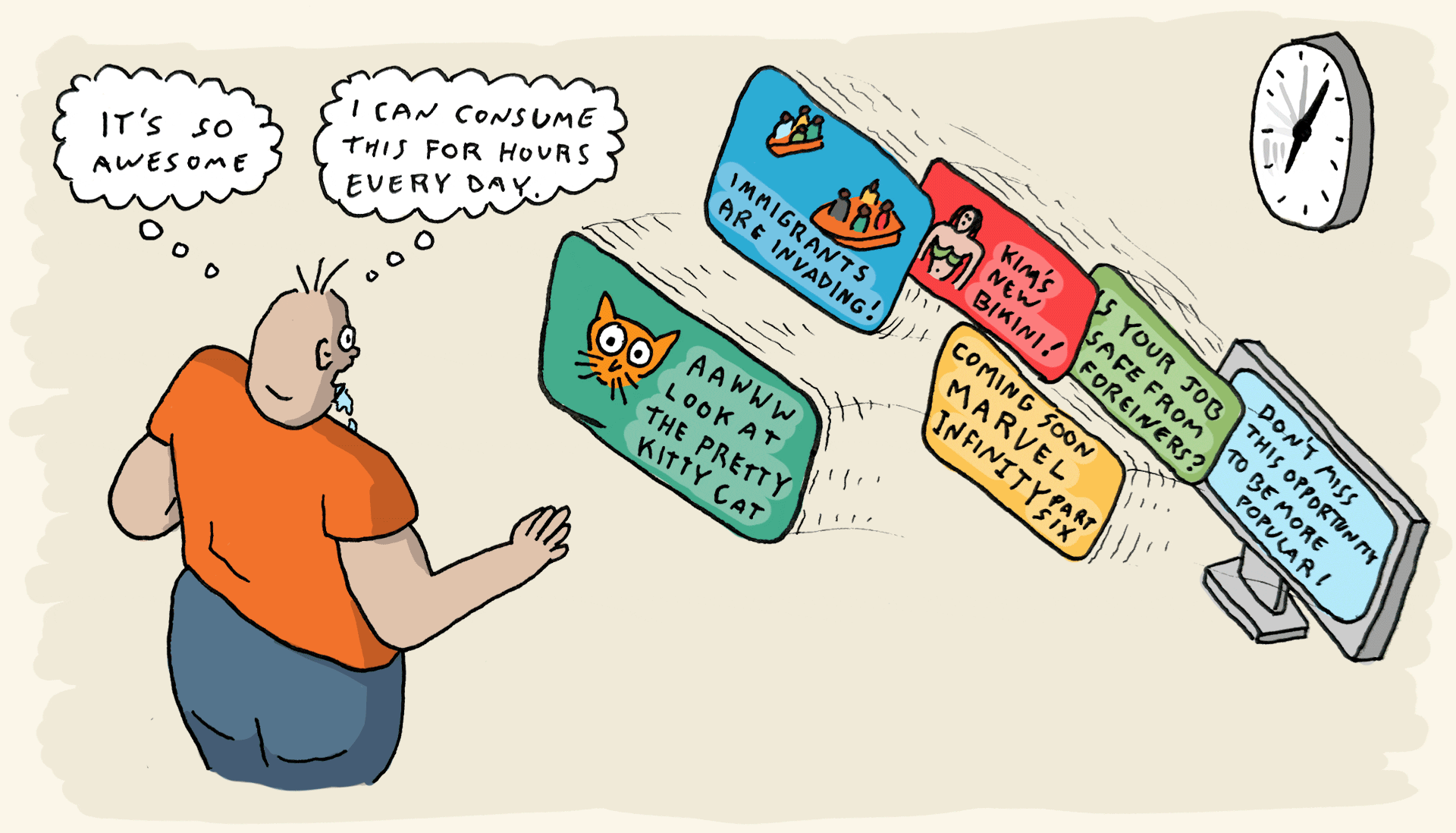
As with taste, so with the visual. Images and video can create an emotional response in us — cute cats and babies, pretty faces, sexy bodies[^1]. And the cuter, prettier and sexier the better. And it doesn’t have to be positive emotions, we will also seek out information that makes us angry, or confirms our prejudices2.
2 Confirmation bias: we prefer information that confirms what we already believe to be true.
 Like the big boobies on The Venus of Willendorf, a little figurine from about 30,000 years ago. Even information can also result in evolved emotional responses.
Like the big boobies on The Venus of Willendorf, a little figurine from about 30,000 years ago. Even information can also result in evolved emotional responses.
Many individuals devote considerable time to absorbing content from social media platforms — Twitter, Instagram, Facebook, TikTok etc. Those systems are designed to keep you hooked on them. Social media feeds show us what it calculates we most want to see. And what we most want to see are things that give us the strongest emotional responses. This is a problem because a lot of our emotional responses have been programmed by our evolution, and are frankly a bit dumb for the modern world. So our twitter feeds are full of contrived rage-bait, cute kittens, and beautiful people. Not stuff that will improve our thinking and make us better people.
Our evolved instincts drive us to consume as many calories as possible while conserving energy. This means it takes a lot of self-discipline to diet and exercise. It’s the same with our information diet. The kind of information that makes us feel good in the short term leads to a lazy dumb brain in the long term. We have to make an effort to consume good information. Self-discipline pays huge dividends in the long-term with diet and exercise. So too with your information diet. The short term pain is worth the long-term gain.
What are you training your brain on?
AI is so hot right now. As you know, generative AI systems like ChatGPT are trained on large quantities of data. Obviously, the higher quality the data, the higher quality the output of the AI system. A similar thing happens with our own brains — your brain changes according to the information you consume. The information you consume is your information diet. Do you consume a lot of good quality information, or a lot of junk?
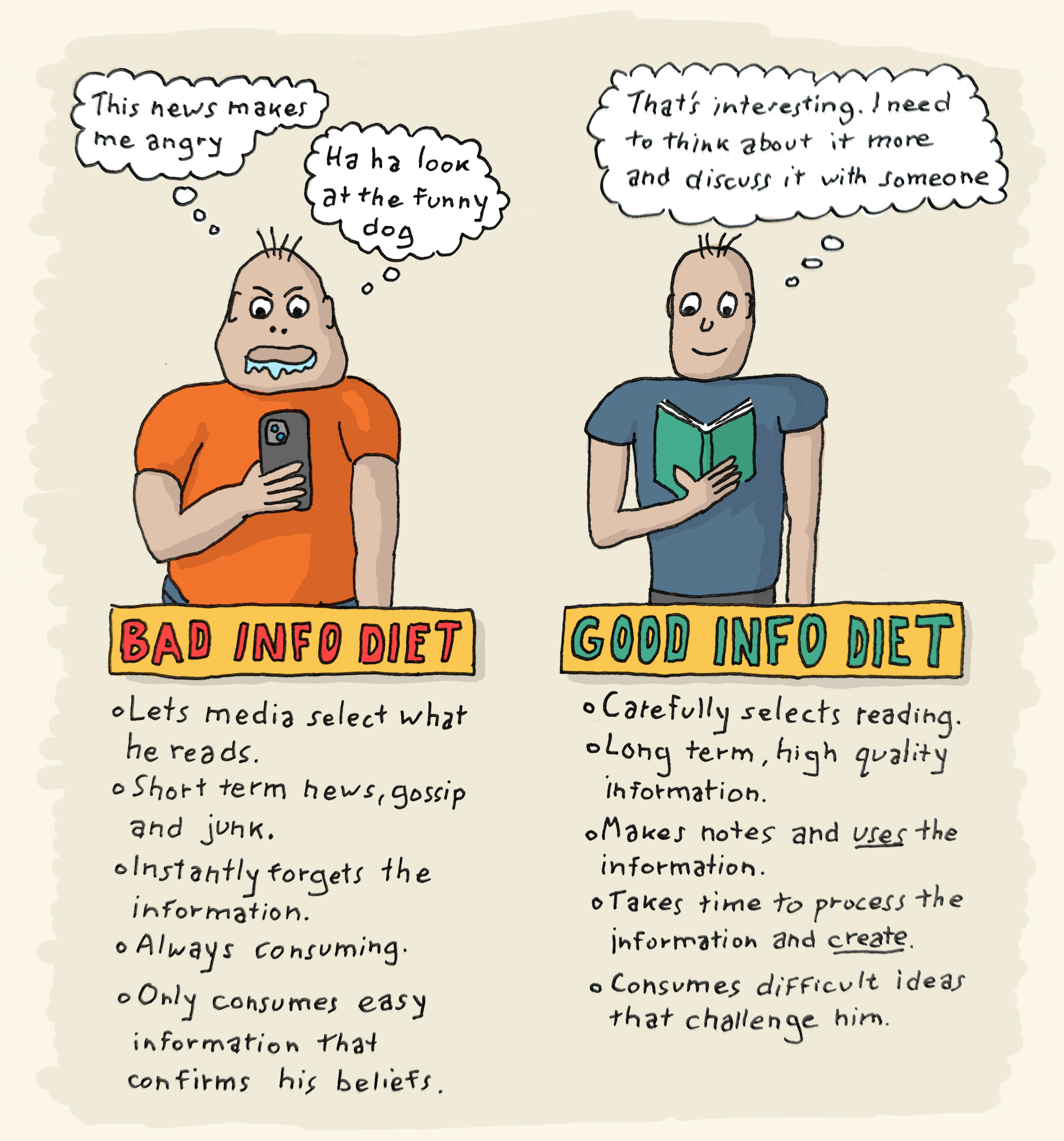
Practical advice
Here are a couple of ideas for improving your information diet:
Make it harder to access, or just delete it
There are lots of ways to make it harder to access time-wasting social media3. You could go hardcore and just delete the apps and accounts (I did that years ago with Facebook). Or you can use software to block access to them at particular times of day (something I did myself. )
3 I used to use the SelfControl app. I would configure it with a list of websites I wanted to avoid accessing, and set it for eight hours at the start of each morning.
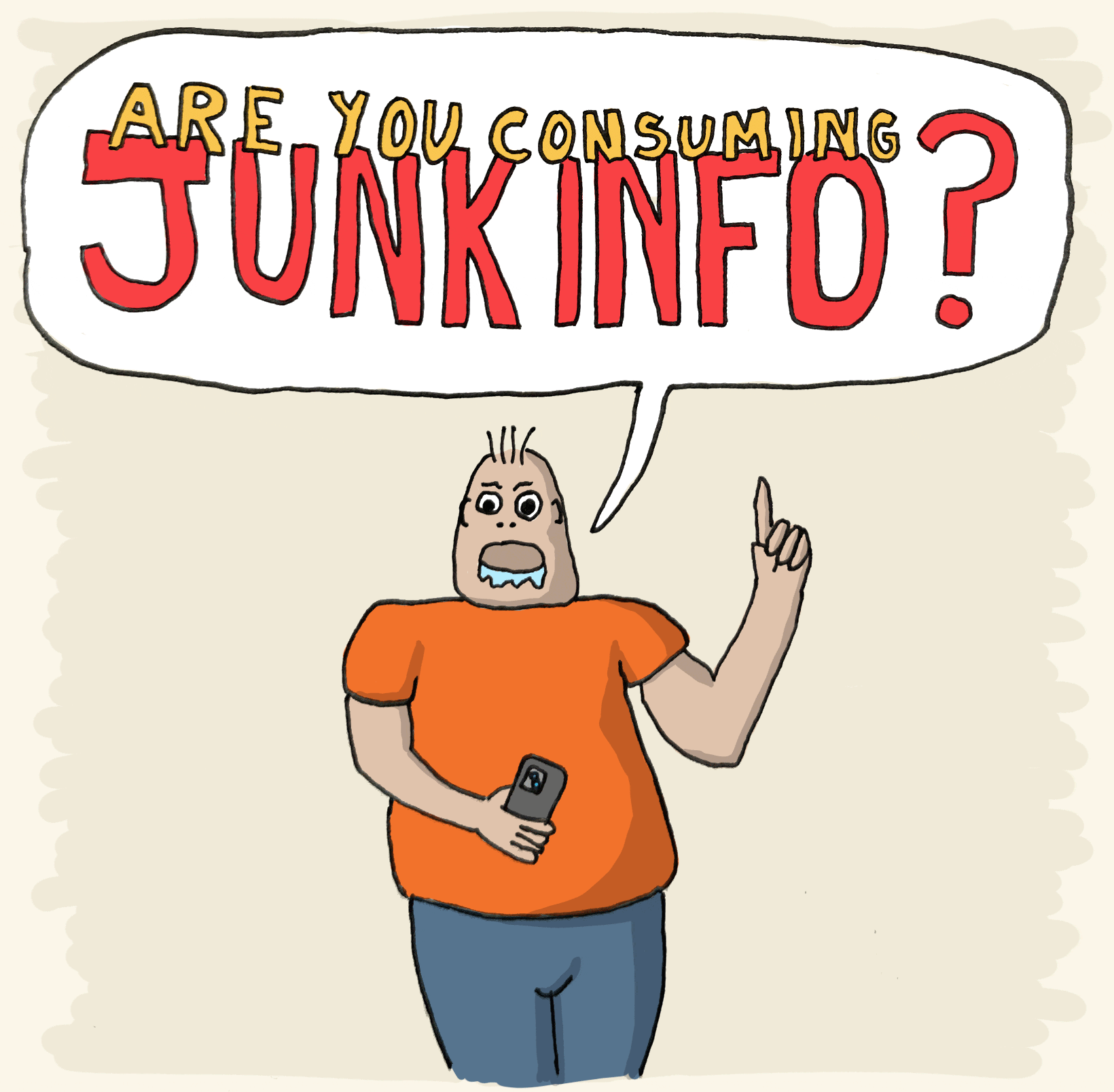
But don’t obsess over it. Balance is the key. Sometimes it’s good to eat a fatty cake, watch cat videos or read a trashy novel. Just be mindful of what you consume, and really avoid that stuff during the times of the day when you are most productive.
Further reading
“The information you consume today becomes the raw material of your thoughts tomorrow. If you want to change your thoughts, start with the information you consume.”
“… students who spend less than one hour of “leisure” time on digital devices a day at school scored about 50 points higher in math [ Program for International Student Assessment scores] than students whose eyes are glued to their screens more than five hours a day.”
“…nearly half of students across the OECD said that they felt “nervous” or “anxious” when they didn’t have their digital devices near them.”
Are Phones Making the World’s Students Dumber? - The Atlantic
If you want to stay sane, curate your Twitter timeline:
1. Bad emotions are contagious in social media
2. If you see false info enough, you start to believe it
3. Algorithms that maximize for engagement maximize conflict
4. The opinions on Twitter aren’t representative
“[Phones] impede learning, stunt relationships, and lessen belonging. They should be banned.”
Phones at School Are a Disaster - Jonathan Haidt, The Atlantic
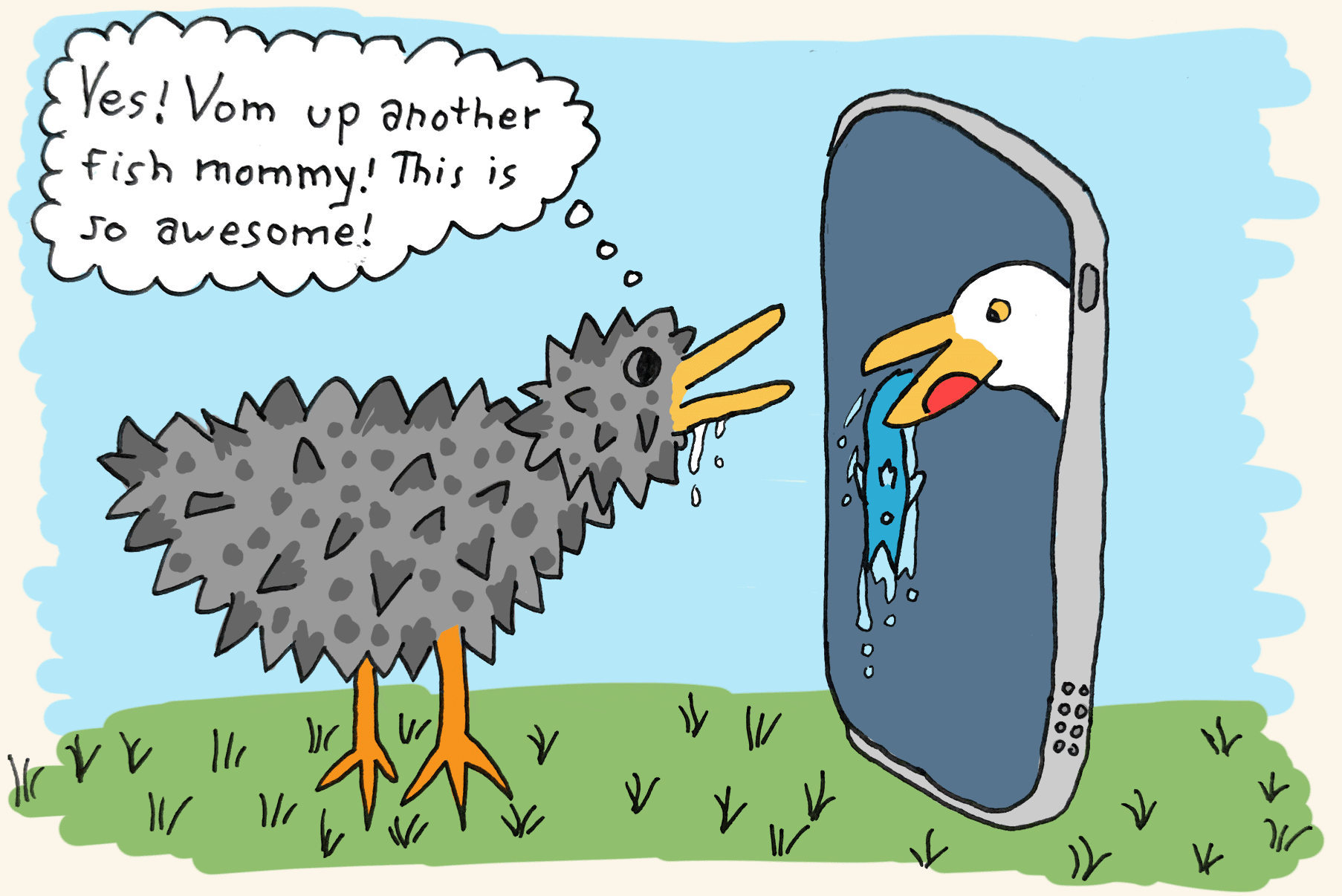
This was written and illustrated James Johnson. Feel free to use this in classrooms, including printing it out or whatever. I have created a special PDF version for classroom use that
We need to talk about your information diet © 2024 by James Johnson is licensed under Attribution-ShareAlike 4.0 International

